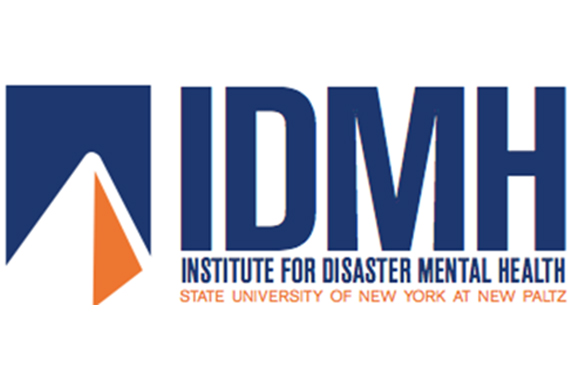New IDMH academy focuses on supporting victims of serious crime
 The Institute for Disaster Mental Health at SUNY New Paltz has trained approximately 160 professionals who work with crime victims through the newly created Victim Services Academy training program, sponsored by the New York State Office of Victim Services (OVS). The academy is designed to teach advocates how to incorporate the principles of Psychological First Aid into their work with victims of serious crimes, in order to effectively address survivors’ emotional distress while supporting their logistical and financial needs.
The Institute for Disaster Mental Health at SUNY New Paltz has trained approximately 160 professionals who work with crime victims through the newly created Victim Services Academy training program, sponsored by the New York State Office of Victim Services (OVS). The academy is designed to teach advocates how to incorporate the principles of Psychological First Aid into their work with victims of serious crimes, in order to effectively address survivors’ emotional distress while supporting their logistical and financial needs.
OVS offered two sessions of the four-day Victim Services Academy, hosted on the SUNY New Paltz campus: May 23 – 26 and June 6 – 9. Participants in the program spent each morning learning new principles and skills, and each afternoon actively using these skills in roleplays, group discussions, and other interactive exercises.
“Our goal in developing the Victim Services Academy was to not only educate the participants about how to better help the clients they work with, but to give them opportunities to practice their new skills so they can feel confident when applying them in the field,” said James Halpern, Ph.D., Director of the Institute for Disaster Mental Health at SUNY New Paltz (IDMH). “Their daily work with crime victims is extremely challenging, and I was very impressed by their dedication to learning new ways to support their clients.”
Added Office of Victim Services Director Elizabeth Cronin said, “Criminal victimization and particularly mass casualty events can have both long- and short-term impacts on survivors. This training was designed specifically to help advocates understand the range of reactions crime victims can have to trauma, so they can better assist them through the emotional, physical, cognitive, behavioral and even spiritual symptoms that often manifest in the aftermath of disasters. This program is intended to be an opportunity to dive deeper into these difficult and sensitive issues.”
The trainings featured opening remarks by Ms. Cronin, Dean of the SUNY New Paltz College of Liberal Arts and Sciences Laura Barrett, Ph.D., Vice President Gerald Benjamin, Ph.D. and U.S. Congressman Chris Gibson, M.P.A., Ph.D. They all addressed the need to incorporate sensitivity to trauma survivors’ psychological reactions in order to support their recovery.
Experts from the IDMH and external collaborators discussed typical and extreme reactions to trauma, and the specific needs of diverse populations including children and families, older adults, people with disabilities, service members and veterans, people who are homeless, people with substance abuse problems, and members of the LGBTQ population. Each of these groups is subject to being victimized by perpetrators who prey on their vulnerabilities so it is essential that advocates understand their particular needs.
The academy also addressed the toll doing this difficult work can take on the helpers themselves, with daily mindfulness exercises and a full day dedicated to maintaining wellness and avoiding occupational hazards like burnout and vicarious traumatization. And, to encourage healthy stress relief practices, trainees were given opportunities to participate in leisure activities including hikes at the Mohonk preserve, a special show at the SUNY New Paltz planetarium, use of the Wellness Center, and even a karaoke night in the newly built Ridgeview Residence Hall where participants stayed while attending the training.

